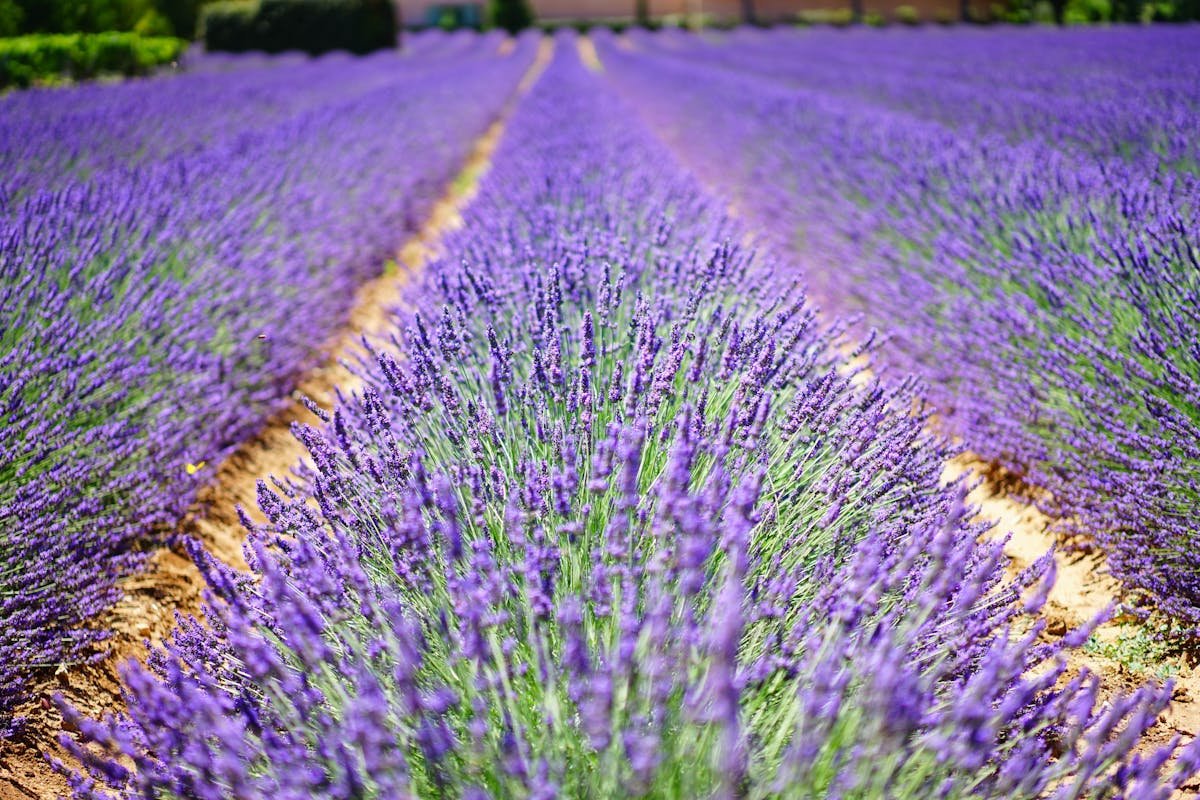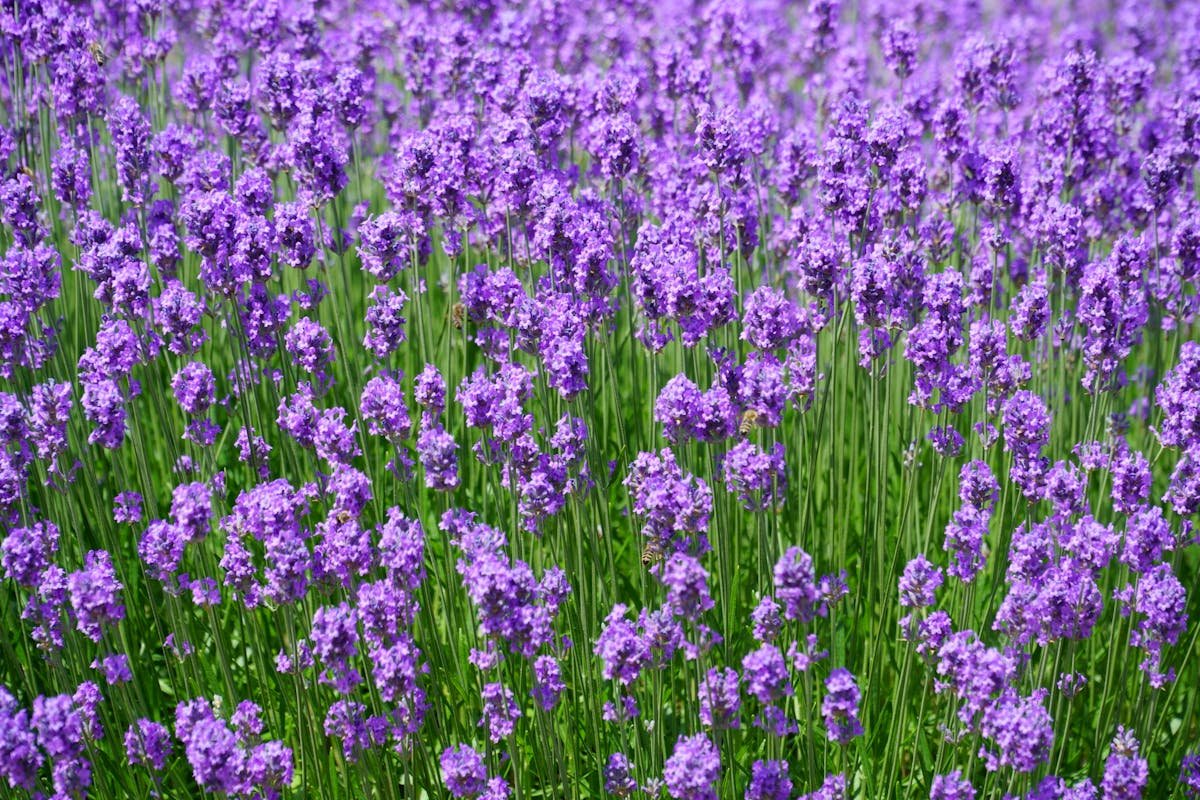Lavender is one of those plants that immediately charms you with its soft aroma, delicate color and welcoming appearance. But it goes far beyond beauty: it offers a series of benefits for the body, mind and environment. Used for centuries in natural medicine, cosmetics and decoration, lavender is a constant presence in homes that value well-being.
In this article, you will learn about the main benefits of lavender , what it is used for and how to use it in your daily life at home — whether it’s in the kitchen in pots, in the garden, or as a calming essential oil.
What is lavender used for?

Lavender has many uses and can be used in many different ways. Some of its main uses include:
- Aromatherapy to Reduce Stress and Improve Sleep
- Creams and oils to relax muscles and moisturize the skin
- Natural decoration that beautifies indoor and outdoor environments
It is known for its calming, anti-inflammatory and antiseptic properties , making it one of the most versatile plants you can have at home.
1. Lavender calms and reduces stress
The aroma of lavender has a direct effect on the nervous system. Studies show that it helps reduce stress, relieve anxiety and improve sleep quality.
Therefore, it is common to use:
- Lavender essential oil in diffusers
- Lavender scented pillows and sprays
- Hot baths with drops of oil to relax the body
Practical tip: put 2 drops of lavender essential oil on your pillow before going to sleep.
2. Helps you sleep better
Do you suffer from insomnia or wake up multiple times at night? Lavender can assist. The soothing effect of lavender slows down the body and mind, allowing for an environment more suitable for deep sleep.
It can be used:
- In diffusers in the room
- In aromatic sachets near the bed
- In mild teas before bed (in moderation)
Important: use only edible lavender for infusions.
3. It works as a natural repellent

In addition to its pleasant scent, lavender has a natural repellent effect against mosquitoes and moths. It is a great alternative for scenting closets, drawers and other rooms without using chemicals.
You can do:
- Fabric sachets with dried flowers
- Homemade spray with lavender and grain alcohol
- Plants in the corners of the house, especially near windows
Tip: use lavender together with citronella to reinforce the repellent effect.
4. It has healing and anti-inflammatory action
Herbal medicine also acknowledges the therapeutic benefits of lavender. Its diluted essential oil can be applied topically to:
- Relieve insect bites
- Helps heal small wounds
- Reduce mild skin inflammation
Warning: Never apply pure essential oil directly to the skin. Always dilute it in vegetable oil.
5. Makes the house more beautiful and fragrant
Lavender is a great ornamental plant in addition to its medicinal uses. Its tiny leaves and lavender hues provide a delicate and elegant decoration.
You can use:
- Lavender pots on the balcony or kitchen
- Dry arrangements for rustic decoration
- Fresh branches in glass bottles or jars
Visual combination: Lavender looks beautiful with light wood furniture, white ceramics and natural fibers.
How to grow lavender at home
Choose the right location:
- Lavender loves direct sunlight. Choose a location with at least 4 to 6 hours of sunlight per day.
Use the right soil:
- Prefer well-drained, light, sandy soils. Lavender does not like excess moisture.
Watering in moderation:
- Only water when the soil is completely dry. To avoid root rot, do not saturate the soil.
Regular pruning:
- Prune branches after flowering to encourage new growth and maintain shape.
Bonus tip: Plant lavender near vegetable gardens and gardens to attract pollinators like bees.
Final Considerations
Lavender is a plant that takes care of the home, mind and body. Whether in the form of tea, essential oil, sachet or planted in a pot on the balcony, it brings countless benefits. It reduces stress, helps you sleep, perfumes the environment, repels insects and also beautifies with delicacy .
Having lavender at home is a simple way to invest in well-being. And the best part: with minimal care, you can reap aromas, lightness and health every day.
Frequently Asked Questions (FAQ)
1. Can I drink lavender tea?
Yes, as long as I use edible dried flowers, suitable for infusion.
2. Does lavender need a lot of sun?
Yes. It grows best in places with full sun for several hours a day.
3. Is lavender toxic to pets?
Dogs and cats that consume the essential oil may become poisoned. Keep out of reach and use carefully.
4. Can you use lavender oil directly on your skin?
No. Always dilute the essential oil in vegetable oil before applying it to your skin.
5. Does lavender last all year round?
Yes, but it blooms mainly in spring and summer.
6. Where to buy lavender?
You can find seedlings in flower shops, nurseries and even supermarkets. You can also buy dried flowers and oils in health food stores and online.

